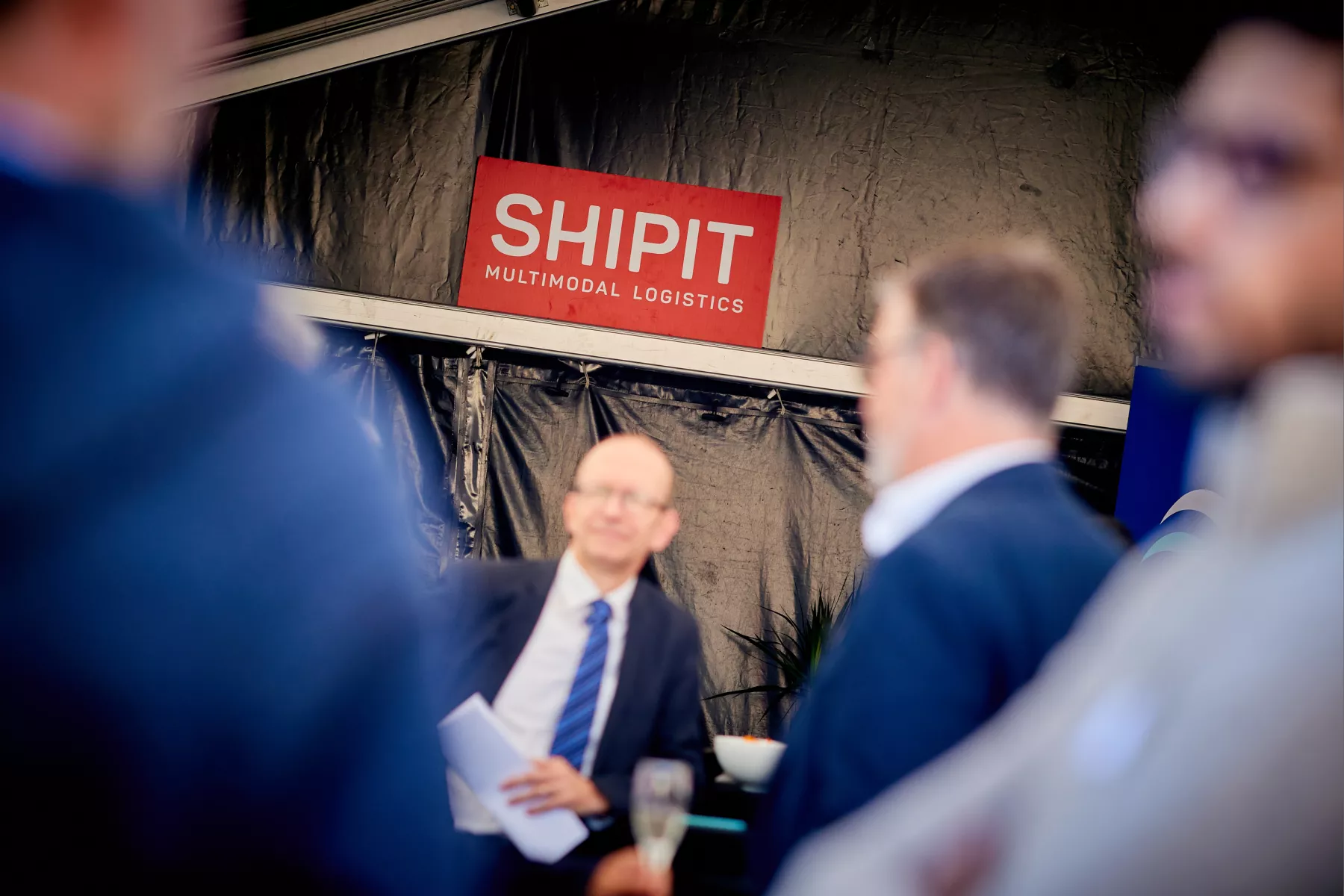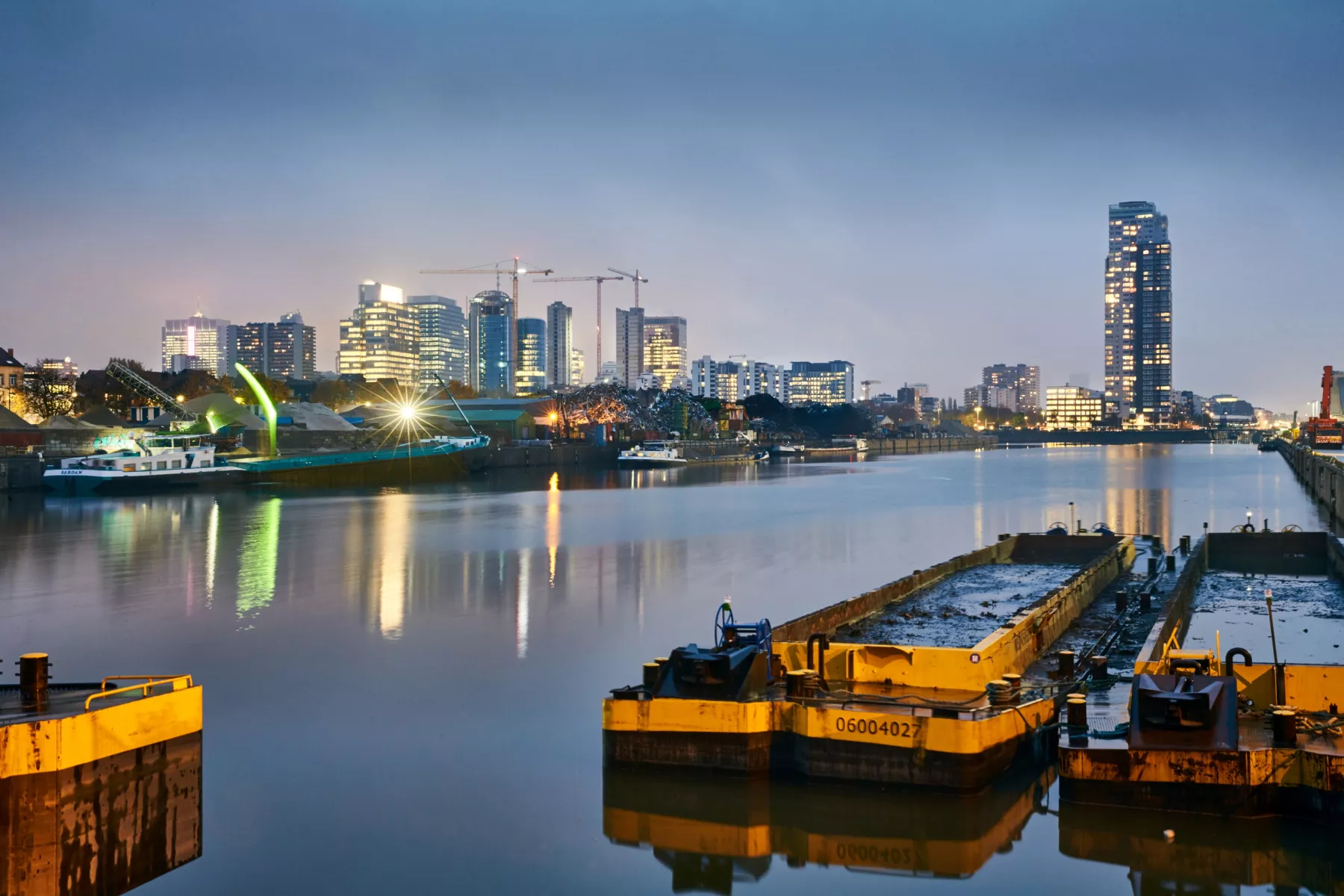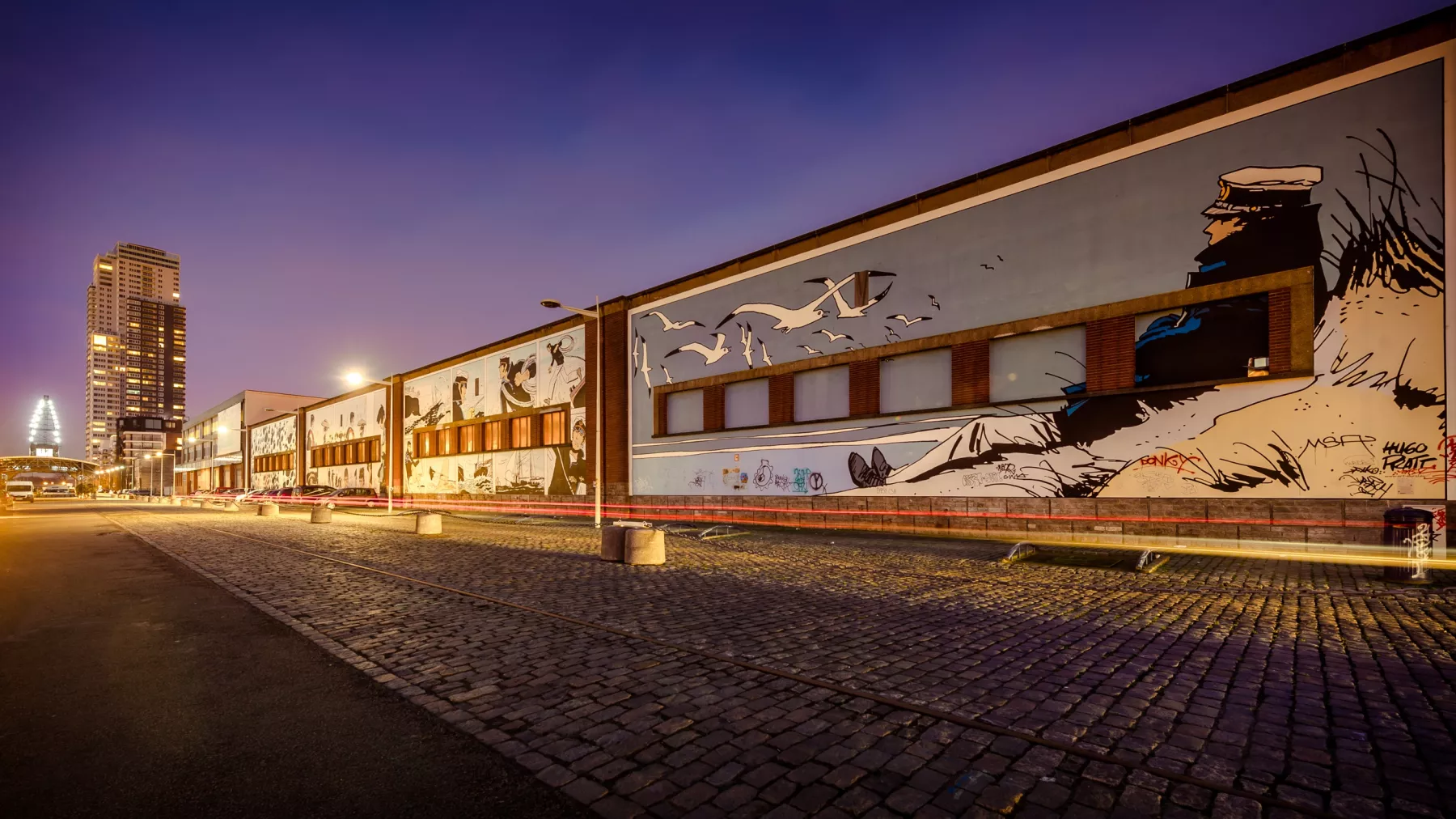Our partners
Regional partners
The issue of transport and logistics goes far beyond the institutional boundaries of the Region. Brussels' central position on the Antwerp-Brussels-Charleroi Canal makes it essential to work with the other two Regions to promote a modal shift towards water transport.
At another level, an enhanced cooperation agreement between the ports of Brussels and Antwerp was signed in 2010 in order to maximise container transport by water between the two ports, among other things.

European partners
European projects for more efficient goods transport
How can SMEs and large businesses be successful in getting their goods to their final destination in Brussels cost efficiently and punctually? By using the opportunities offered by the waterways and multimodal transport. The Port of Brussels is participating in a number of European projects in order to make these opportunities even more efficient.
1. Smart Track 4 Waterway (ST4W) - Interreg North West Europe
The ST4W project aims to shift the transport of palletised freight from the road to inland waterways, including smaller consignments by SMEs.
To stimulate this shift, a track & trace system has been developed. This gives shippers digital access, both simply and cheaply, to secured real-time information about their shipment and can be seen as a supplement to the River Information Services (RIS).
The Port of Brussels has been involved in this project ever since 2017. Working with the logistics company Shipit and plaster manufacturer Knauf the track & trace system is being in tested on the journey Engis – Brussels. Since early 2020 the tool has been tested on 14 shipping routes including the last kilometres by lorry.
The project was initially scheduled to continue until the end of 2020, but it has now been extended until 31 December 2022. This allows further activities to be done in order to maximise the impact.
The global budget for the project is €3.8 million, and the Port’s budget is €291,488.64. With the prolongation, the budget was raised by €1.8 million. The Port budget increased by €50,000. 60% of this is being financed by the Interreg North West Europe programme.
Partners in the project are Multitel ASBL (project leader), CRITT T&L, Logistics in Wallonia, Eindhoven University of Technology, Cranfield University, Stichting Bureau Telematica Binnenvaart, Institut du Droit International des Transport, Stichting Projecten Binnenvaart, Port Autonome du Centre et de l’Ouest and the Port of Brussels.
2. CONNECTing North Sea Region’s TEN-T nodes – Interreg North Sea Region
The project North Sea Connect aims to stimulate intermodal transport in the North-Sea region by increasing its efficiency. This is possible both by using IT tools and by developing adapted strategies and innovative concepts.
The Port of Brussels is taking part in this project with the consolidation of building materials. This kicked off in July 2018 with the arrival of Shipit at the Vergotedok (BCCC). Meanwhile, its expansion towards Biestebroek Dock (BCCC) in the south is being tested. A feasibility study is being developed for this purpose. Plus, there is consideration of how legislation can be adapted in order to extend the use of a CCC in Brussels. A shuttle service between BCCC North and BCCC South is also being tested and a business model is being developed. Furthermore, it was necessary to modify an existing quay.
This project will continue until March 2023.
The global budget for this project amounts to €3.5 million, and €459,698 for the Port. 50% of this is being financed by the Interreg North Sea Region programme.
Partners in the project are Hafen Hamburg Marketing (project leader), Port of Oostende, Port of Hamburg, Delft University of Technology, Canal & River Trust, Port of Brussels, Development Council of Southern Denmark, South East of Scotland Transport Partnership, Niedersachsen Ports, Ministry of Economic Affairs, Labour and Ports, Free Hanseatic City of Bremen, University of Plymouth and VIVES.More
More info: https://northsearegion.eu/north-sea-connect/
3. Innovation driven Collaborative European Inland Waterways Transport Network (IW-NET) – Horizon2020
The project aims to support the European Commission’s strategic objectives for inland waterways by developing adapted infrastructure and including it in the trans-European Transport network (TEN-T). From now on, transport by water must be better integrated in the multimodal transport. Further digitalisation can help in accomplishing this. The ultimate goal is to increase the inland waterway’s share in the modal split by more than 10%.
The Port of Brussels is taking part in the project following the development of the track & trace tools for the ST4W project. This targets the expansion of a logistics centre in Biestebroek and the multimodal last-mile delivery of pallets in the capital. Consideration is being made of eco-friendly transport, such as for example Urbike, whereby the urban distribution can be optimised and made more sustainable.
The global budget for the project amounts to €8.3 million, and the Port’s budget is €280,000. This is being fully financed by the Horizon2020 programme.
The project began mid 2020 and will continue until mid 2023.
Partners in the project are Institut fur Seeverkehrswirtschaft und logistik (project leader), Inlecom, Blue Line Logistics, Bundesverband Offentlicher Binnenhafen, Institute of communication and computer systems, Multitel, Ports de Lille, Port de Charleroi, Instituto Technologico de Aragon, IXT Platform, Austrian Institute of Technology, SKILLZ, Transport Trade Services, NAVROM Shipyard, VLTN, Universite Polytechnique Hauts De France, New Generation Sensors, Bundesministerium fur verkehr und digitale infrastruktur, Nothegger Transport Logistik, Deutsches Zentrum Fur Luft, Alberding, Konnecta, Smart Freight Centre, Shipping Factory, KU Leuven, Urban Waterway Logistics, Bremenports, Port of Brussels, Kanzlei Anzböck, IT-Optics and Wayz BV.
More info: https://www.inlandwaterwaytransport.eu/iw-net-project/
4. DIGIWAVE – Connecting Europe Facility Transport
Policies at European, Belgian and regional (Flanders, Brussels, Wallonia) level seek to optimise the transport network to stimulate economic growth, improve climate resilience and enhance the liveability of society. Improving logistics, mobility and transportation are an important step in this regard. De Vlaamse Waterweg (project coordinator) and the Port of Brussels want to contribute to this policy to realise inland navigation as a climate-neutral, resilient and fully-fledged transport mode through smart, synchromodal and automated transport. The project aims to optimise traffic and transport management to maximise the integration of automated inland navigation in a synchromodal transport chain. This will be achieved through thorough cooperation and agreements with stakeholders (worldwide) and building towards a resilient and reliable information structure (services). DigiWave is a collection of digitalisation projects for inland navigation in Belgium, with a focus on other modes of transport.
The overall budget for the project is 2,422,111.50 euros, while the Port's budget is 284,000 euros. Of this, 50% will be funded by the Connecting Europe Facility Transport programme.
5. RED II Ports : Renewable Energy Development and Intelligent Implementation in PORTS
This project aims to answer the question: 'Which energy systems should ports attract to remain relevant and competitive in a European and global logistics framework?' The European Commission's proposal to reduce greenhouse gas emissions by at least 55% by 2030 puts Europe on a responsible path to become climate neutral by 2050. To support this objective, the ports and knowledge partners of this consortia will seek and implement new solutions that contribute to the local economy and strengthen their competitiveness.
RED II PORTS aims to identify new applications of intelligent energy systems in:
• port areas
• shore power and
• energy supply for ship propulsion
Depending on the local situation in which the port operates, different energy systems may be relevant to promote the green transition of ports.
The Port of Brussels will implement the "Green transition in Brussels" pilot. This consists of 2 parts: implementation of shore power facilities in the Port of Brussels; development of hydroelectric power generation capacity through hydroelectric turbines.The overall budget for the project is 6,871,620 euros, while the Port's budget is 573,000 euros. Of this, 60% is funded by the Interreg North Sea Region programme.Partners in the project include: Haven van Skagen, Niedersachsen Ports, Korsor Havn, Haven van Brussel, Haven van Moss, Port of Zwolle, Multimodal Container Services, Conseil régional de Bretagne, Hafen Hamburg Marketing, Vives, NICE, Bretagne Développement Innovation, Maritime Equity Partners, Laumé Climate Consulting and Port of Trelleborg.
Other projects
The Region and the Port are working together to strengthen the role of the Port of Brussels as a node within the European TEN-T multimodal networks.
In fact, the Port played a leading role in the transnational cooperation project "Connecting Citizen Ports 21 (CCP21)", with the ports of Lille, Paris, Liège, Utrecht, the Port of Switzerland and Rheinports Basel-Mulhouse-Weil.

International partners
The Port’s European and international integration is founded in particular on its active role within sectoral associations, such as the European Federation of Inland Ports (EFIP), the AIVP (International Association of Cities and Ports), the AIPCN (Association of Maritime and River infrastructure), etc., as well as more specific activities, such as participation in international events or cooperation agreements.

